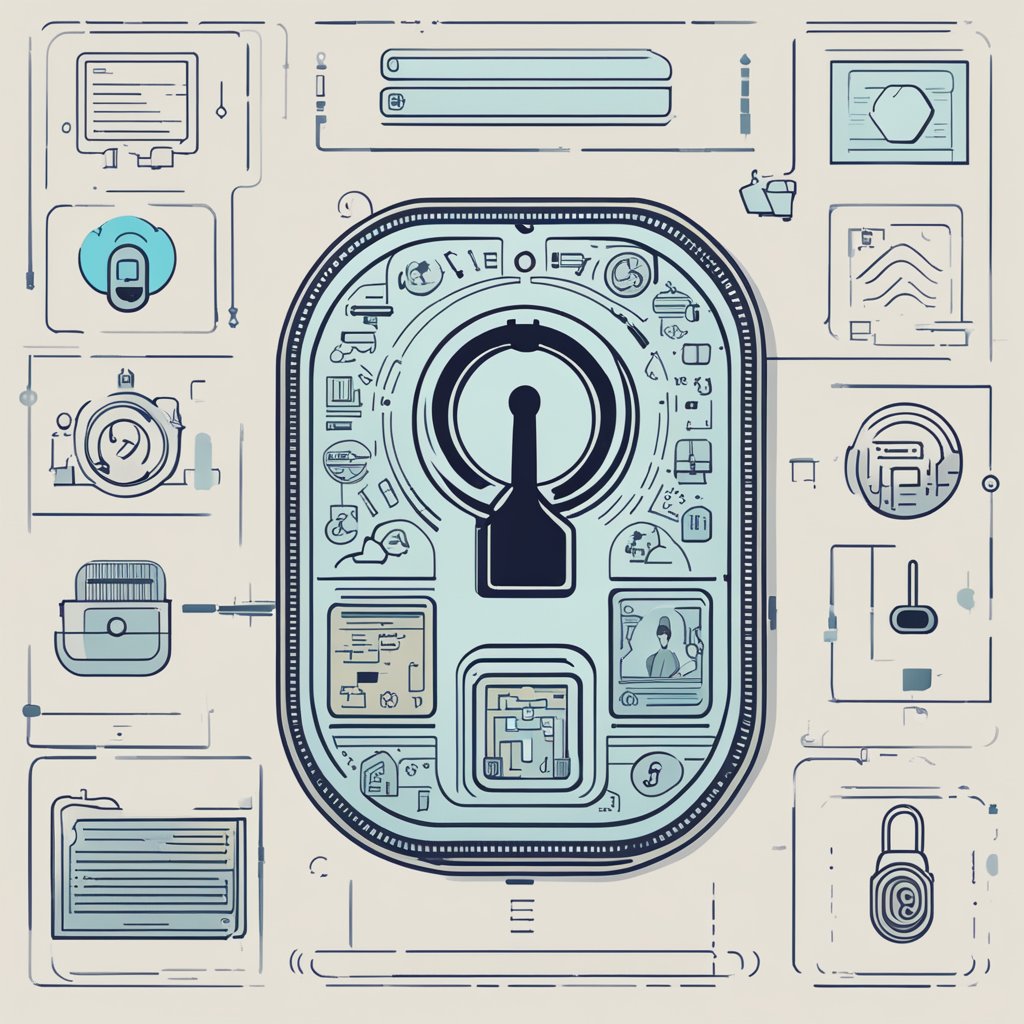Table of Contents
ToggleIntroduction
In a world where digital identity verification is becoming increasingly important, the Civic blockchain-based identity verification platform emerges as a leading solution. Civic leverages blockchain technology to provide a secure and decentralized method for verifying identities, making it an attractive option for both government bodies and private organizations. With the growing threat of identity theft and fraud, platforms like Civic are essential in ensuring that personal data remains protected and accessible only by authorized parties.

Civic stands out by offering a streamlined and efficient process for identity checks, which can significantly reduce the costs and time associated with traditional methods. By using blockchain, Civic ensures that data is not only secure but also easily shared between entities needing verification. This is particularly beneficial for disadvantaged individuals who may struggle with traditional identification systems, as it empowers them with a secure digital identity.
The platform’s partnership with various entities and its robust ecosystem adds to its credibility and usability. Civic enables seamless integration with other services, enhancing its value proposition. This adaptability makes it suitable for a wide range of applications, from simple identity checks to more complex scenarios requiring high security.
Key Takeaways
- Civic uses blockchain to offer secure, decentralized identity verification.
- The platform reduces the cost and time of identity verification.
- Civic’s ecosystem and partnerships enhance its usability and adaptability.
Understanding Blockchain Identity Verification

Blockchain-based identity verification leverages the decentralized and secure nature of blockchain technology to verify and safeguard personal information. It employs encryption and cryptographic techniques to ensure data integrity and user privacy.
Blockchain Technology and ID Verification
Blockchain technology is a decentralized ledger system. It records transactions in a transparent and tamper-proof manner. This system relies on a network of nodes to validate and record transactions, making it highly secure.
In identity verification, blockchain ensures that personal data is distributed across many nodes. This prevents single points of failure or breaches. When a user’s identity is verified, an encrypted transaction is recorded on the blockchain. This transaction provides a permanent, immutable record of the verification.
Civic, as an example, uses blockchain to share authenticated documents between government bodies and private organizations securely. By doing so, it reduces fraud and streamlines the identity verification process.
Securing Personal Information on the Blockchain
Securing personal information on the blockchain relies heavily on encryption and cryptographic methods. Every piece of data stored on the blockchain is encrypted, which means it is transformed into a secure code that can only be deciphered with a specific key. This ensures that only authorized parties can access the information.
Furthermore, blockchain uses public and private keys for security. A public key is shared openly, while a private key is kept secret.
When data is written to the blockchain, it is signed with a private key, verifying the authenticity and integrity of the data. Civic’s platform, for instance, ensures that users control their identity information, which is shared only with their consent through encrypted transactions. This results in better privacy and control over personal data.
To see more about Civic’s approach to secure digital wallets, read more here.
Civic’s Role in Decentralized Identity

Civic leverages blockchain technology to offer a secure and decentralized method for identity verification. This approach ensures personal data control, enhancing security and privacy for users.
Who Is Civic?
Civic is a company co-founded by Vinny Lingham and Jonathan Smith. It focuses on providing a blockchain-based identity verification platform. The platform allows users to manage their digital identities securely.
By using cryptographic tools, Civic ensures that personal information is stored safely on decentralized networks. This reduces the risk of data breaches. Users can share their identity information with others without revealing sensitive details.
Civic’s platform is also designed to integrate with decentralized finance (DeFi) projects. This compatibility with DeFi helps users access various financial services that require identity verification.
Civic’s Digital Identity Solution
Civic’s digital identity solution uses blockchain technology to store and verify user identities. Users generate a unique, tokenized identity that is both verifiable and secure.
The system uses decentralized identifiers (DIDs) and verifiable credentials (VCs) to build trust without relying on centralized authorities. This approach enhances user privacy and control over personal data.
Civic also implements multi-factor authentication (MFA) to strengthen security. This includes biometric methods like fingerprint and facial recognition.
Civic enables users to prove their identity in various online and offline scenarios. It supports businesses in adhering to Know Your Customer (KYC) regulations with minimal friction.
By leveraging a decentralized model, Civic’s platform offers better security and privacy compared to traditional identity verification systems, making it an important player in the digital identity space.
Key Components of the Civic Platform

Civic’s blockchain-based identity verification platform consists of essential elements like the CVC token and the Civic Wallet. These components ensure a seamless, secure, and user-friendly experience for managing digital identities.
CVC Token: Utility and Function
The CVC token is central to the Civic ecosystem. CVC is an Ethereum-based ERC-20 token used to facilitate transactions within the Civic platform. Users need CVC tokens to access a range of identity-related services.
- Utility: CVC serves multiple purposes, such as paying for services, rewarding validators, and accessing shared data.
- Function: Validators earn tokens by verifying and attesting to the validity of user identities. This creates a decentralized network, promoting trust and transparency.
- Benefits: The use of CVC tokens helps ensure that identity verifications are secure, swift, and cost-effective.
Overall, CVC tokens are essential for incentivizing participation and maintaining the system’s integrity.
The Civic Wallet: Features and Security
The Civic Wallet is designed for secure storage and management of digital identities and CVC tokens. It leverages blockchain for better security and accessibility.
- Features: The wallet allows users to store and manage their Civic ID and CVC tokens. It supports transactions and interactions within the Civic ecosystem.
- Security: Built on the Ethereum blockchain, the wallet uses public and private keys for strong encryption and secure access.
- User Experience: It offers a user-friendly interface, making it easy to manage digital identities. Users can control who accesses their information, enhancing privacy and autonomy.
The combination of its features and security measures makes the Civic Wallet a robust tool for managing digital identities effectively.
Civic Ecosystem and Partners

The Civic platform is designed to create a secure and transparent environment for digital identity verification. It leverages blockchain technology to ensure users maintain control over their credentials while service providers can reliably validate identity.
Ecosystem Participants and Validators
The Civic ecosystem is composed of several key participants, including users, validators, and service providers. Users are individuals who create and manage their digital identities. They can use these identities to interact with various services that require identity verification.
Validators play a critical role in this ecosystem. They are responsible for verifying the information provided by users. Once validated, this information is recorded on the blockchain, ensuring its authenticity. Validators are incentivized with Civic tokens (CVCs), which they receive for their services. This token system helps maintain the integrity and efficiency of the identity verification process.
Service providers are businesses or organizations that require verified user identities. They rely on the validated information to offer services such as financial transactions, healthcare access, and more. This dynamic between users, validators, and service providers ensures a robust and trustworthy verification process.
Strategic Partners and Integrations
Civic has developed strategic partnerships and integrations to extend its platform’s reach and functionality. Some notable partners include Jolocom, Blockstack, and UniquID. These partnerships enable seamless integration with various platforms, enhancing the user’s ability to use their verified identities across multiple services.
The Civic Marketplace serves as a hub for service providers to offer their services to verified users. This marketplace creates a collaborative environment where businesses can showcase their offerings and users can find reliable services that accept their Civic-verified identities.
Integration with platforms like Jolocom and Blockstack extends the platform’s usability, allowing users to access a broader range of services. This strategic collaboration strengthens the value proposition of Civic as a comprehensive identity verification solution.
Implementation and Use Cases
Civic’s blockchain-based identity verification platform provides a secure environment for managing digital identities. This section will explore how Civic is adopted for decentralized applications (DApps) and its real-world applications.
Adopting Civic for DApps
Civic’s platform enables DApps to integrate identity verification seamlessly. By using Civic Pass, DApps can quickly verify users’ identities without storing sensitive information themselves. This enhances privacy and security for users.
Identity.com, Civic’s partner, provides an open-source framework for building these solutions. Developers can utilize pre-built modules to reduce development time. Moreover, the platform supports compliance with various regulations, making it easier for DApps to operate legally across different regions.
DApps benefit from Civic’s KYC (Know Your Customer) admin platform, which simplifies user onboarding. The system verifies identities in real-time, reducing the risk of fraud. Additionally, users retain control of their personal data, sharing it only when necessary.
Real-World Applications
Civic’s identity verification system has several real-world applications. One notable use is in financial services, where the platform helps streamline customer verification processes. Banks and other financial institutions can use Civic to meet regulatory requirements for KYC.
In the healthcare sector, Civic’s platform ensures patient data is accessible only to authorized entities. This maintains privacy while enabling efficient data exchange between healthcare providers.
Online services, like e-commerce and social media, also benefit from Civic’s identity verification. By verifying user identities, these platforms can reduce fake accounts and enhance user trust. Event organizers can use Civic to verify attendees’ identities, ensuring secure and streamlined access.
Civic’s system also supports age-restricted services, like online gambling, by verifying users’ ages without exposing their full identities. This enhances user privacy while ensuring compliance with age-related regulations.
Advantages of Using Civic
Civic’s blockchain-based identity verification platform provides several key benefits, including enhanced security and user privacy, as well as low-cost and scalability.
Enhanced Security and User Privacy
Civic leverages blockchain technology to offer robust security and privacy protections. Users have full control over their personal data, meaning that they decide who can access their information and under what conditions. This approach reduces the risk of data breaches and unauthorized access.
Data stored on the blockchain is encrypted and distributed across multiple nodes, making it virtually tamper-proof. The decentralized nature of blockchain ensures that no single entity holds all the information, enhancing both security and privacy.
Civic’s platform uses state-of-the-art cryptographic protocols to ensure that data remains secure during verification processes. This level of security is particularly important for applications where sensitive information is involved, such as financial services or medical records.
The Benefits of Low-Cost and Scalability
By utilizing a blockchain-based system, Civic can offer a more cost-effective solution for identity verification compared to traditional methods. Blockchain transactions are typically cheaper due to the elimination of intermediaries, which reduces the overall cost for users and organizations.
Civic’s platform is designed to handle a growing number of users without significant increases in operational costs. Scalability is a key feature of blockchain technology, allowing the system to maintain performance and reliability even as usage increases.
The platform’s low-cost nature and scalability make it an ideal choice for organizations of all sizes, from small businesses to large enterprises. By reducing the costs associated with identity verification, Civic enables broader access to secure and private identity solutions.
Use these strong, cost-effective, and scalable solutions to ensure your organization benefits from enhanced security and user privacy. With these advantages, Civic stands out as a powerful tool in the realm of identity verification.
Future Directions in Blockchain Identity Verification
Future directions in blockchain identity verification hold substantial promise, particularly in how standards evolve and how ecosystems like Civic grow. The focus is on regulatory developments and the expansion of platforms to integrate more technologies and blockchain networks.
Evolving Standards and Regulations
As blockchain technology advances, the need for standardized regulations becomes more pressing. Governments and regulatory bodies are beginning to recognize the importance of these systems. Rules for data privacy, such as the GDPR in Europe, are likely to influence how identity verification platforms operate.
These regulations aim to protect user data while ensuring security and transparency.
Blockchain identity solutions, including Civic, must adapt to comply with new laws. This may involve updating security protocols or enhancing verification processes to meet legal standards. Collaboration with regulatory bodies can also help in shaping these rules to benefit both users and developers.
Expanding the Civic Ecosystem
Civic aims to expand its ecosystem by leveraging advancements in blockchain technology. Integrating with other blockchain networks like Solana can offer better scalability and speed. This multichain approach allows Civic to handle more transactions and provide services at lower costs.
Smart contracts are another area of growth. They can automate identity verification processes, reducing the need for manual checks and increasing efficiency. Decentralized finance (DeFi) platforms can also benefit from secure and verified user identities provided by Civic.
Growth in the Web3 space is another target for Civic. By integrating with Web3 applications, Civic can provide seamless identity verification across various digital services. This broadens their user base and enhances the platform’s functionality and reach.
Challenges and Considerations
Implementing a blockchain-based identity verification platform like Civic involves navigating regulatory compliance and addressing technical and adoption challenges. Understanding these factors is crucial for effective deployment and user trust.
Navigating Regulatory Compliance
Regulatory compliance is a significant challenge for blockchain-based identity verification platforms. Different countries have varying legal frameworks which make it difficult to create a universally compliant system. To meet Know Your Customer (KYC) requirements, Civic needs to ensure that its platform aligns with international guidelines and local laws.
In regions like the European Union, data protection laws such as GDPR mandate strict measures for handling personal data. Civic must guarantee user information is secure and accessible only by authorized parties. Failure to comply can result in hefty fines and legal repercussions.
Moreover, continuous updates to regulations mean Civic needs to stay agile. Ongoing communication with regulators ensures that the platform evolves with changing laws. This proactive approach helps in maintaining the integrity and legality of Civic’s identity verification system.
Technical and Adoption Challenges
Technical challenges revolve around the scalability and security of blockchain technology. As the user base increases, Civic needs to manage the high volume of transactions without compromising speed or efficiency. Ensuring the platform’s resilience against cyber threats is also essential to protect user data.
Adoption challenges stem from the need for user trust and understanding of the technology. Many individuals are unfamiliar with blockchain, which can hinder widespread acceptance. Civic has to invest in educational initiatives to bridge this knowledge gap.
Moreover, seamless integration with existing systems and platforms is necessary for broad adoption. Civic needs to ensure compatibility with varied digital infrastructures. This involves extensive research and development to tailor the platform to different technological environments.
Frequently Asked Questions
Civic uses blockchain technology to provide secure identity verification services. This section addresses common questions about how Civic operates, its security measures, and its benefits over traditional methods.
How does blockchain technology enhance identity verification processes?
Blockchain technology provides a decentralized and tamper-proof ledger. This means personal data is more secure and transparent. Civic uses this technology to create a secure and verifiable identity for users. Users can trust that their data is accurate and safe from unauthorized changes.
What are the security measures implemented by Civic to protect personal information?
Civic employs encryption to secure personal data. The credentials are stored on the blockchain, making them difficult to tamper with. Civic also uses multi-factor authentication to ensure only authorized users can access their accounts. These measures combine to create a robust defense against identity theft.
How does Civic ensure the uniqueness and integrity of an individual’s identity?
Civic verifies user identities through a trusted network of validators. These validators check the provided information against reliable sources. Once verified, the identity data is encrypted and recorded on the blockchain. This process helps maintain the uniqueness and integrity of each user’s identity.
What are the advantages of using Civic’s identity verification over traditional methods?
Civic offers several advantages over traditional methods. It reduces the need for repeated identity checks, saving time for users. The blockchain-based verification ensures higher data security and transparency. Additionally, Civic’s method is more resistant to tampering and fraud, offering a reliable alternative to paper documents.
In what ways can users utilize the Civic Pass for authentication purposes?
The Civic Pass can be used for various authentication needs. Users can log in to websites, access services, and verify their identity in real-time without repeatedly entering personal information. This streamlines the authentication process and enhances security by reducing the need for multiple identity checks.
How is Civic adapting to the ever-evolving landscape of cryptocurrency and blockchain?
Civic is continuously updating its platform to stay current with industry developments. This includes integrating with new blockchain technologies and adapting to regulatory changes. By staying agile, Civic ensures it provides secure and effective identity verification in the dynamic world of cryptocurrencies and blockchain technology.












